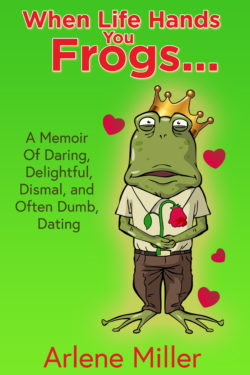 A Guest Post by Cate Parke
A Guest Post by Cate Parke
Etymology lovers will enjoy this guest post by Cate Parke.
Those Pesky Homonyms
I want to tell you about a word I found that I’d been using incorrectly for I have no idea how many–(ahem) decades. It involves homophones. The word is meet. When I read the correct word usage in a novel I was reading, I’d been certain the word had been used incorrectly. I’m lucky to have an unabridged English dictionary so, of course, I looked it up. With the aid of my Advanced English Dictionary app, I also was able to get all the correct etymologies to the three homophones. The words are mete, meet, and meat. Mete had the shortest two meanings: Its noun form (which I hadn’t known) means “a line indicating a boundary, border, or a delimitation.” The verb form means to measure or allot, especially as in punishment or reward. Cool word! Right?
Meat is a pretty well-used word in the English language, and as most of us do, I knew that one. So along comes the word meet. It has rather a lot more meanings, including verb, noun, and adjective forms. It was the adjective form—the very last one I read—that threw me. The sentence was, “It is only meet that she should be seated first.” I was sure that it had been used incorrectly. However, it seems that I was the one who’d been incorrect. Here’s what I wrote for my critique partners’ edification (and which I thought you might enjoy, too).
Homophones are pronounced the same, but are spelled differently and mean something quite different (such as reek and wreak—or bare and bear—or plain and plane.) Try cents, scents, and sense for another instance. Don’t you just love the English language?
Homographs, on the other hand, are words that are spelled alike and sound alike, but have different meanings, such as plane, plane, and plane (one refers to a means of transport, the next is a woodworking tool, and the next refers to a term in geometry (as in plane geometry). There are quite a few of these. Try bank (as in a river bank) and bank (as in the place you stash your money) and bank (as in an aircraft maneuver—to bank a plane).
Heterophones, conversely, are spelled alike but are pronounced differently and mean different things: bow (to bend at your neck or waist respectfully) and bow (something like ribbons that you can tie into your hair).
It’s enough to give you a headache. Some people lump the whole mess into the general category of Homonym. I’ve always loved these darned things.
In case you were wondering . . .
-
Mete: [Etymology: from ME (meten); from OE (meten): (“to measure, give out, mark off, compare, estimate, pass over, traverse”); from Proto-Germanic metaną (“to measure”); from Proto-Indo-European med- (“to measure, consider”); Cognate w/ Scots mete (“to measure”), West Frisian mjitte (“to measure”); Dutch metan (“to measure”); Swedish mäta (“to measure”); Latin modus (“limit, measure, target”); Ancient Greek μéδείμνοç (I think this alphabetic spelling is correct)—but which, in the English alphabet, is medímnos: (“measure, bushel”); or also in Ancient Greek, but using more or less an English alphabet—médesthai: (“care for”); Old Armenian (for which I don’t even have alphabetic symbols), but their word, in the English alphabet, is mit, (“mind”)]
a. Noun: a line indicating a boundary, a border, or a delimitation
b. Verb: to measure or allot (especially as in punishment or reward) -
Meet: [Etymology 1. from ME meten, from OE mētan (“to meet, find, find out, fall in with, encounter, obtain”); from Proto-Germanic mōtijaną (“to meet”); Proto-Indo-European: mōd-, mad-(“to come, meet”); Cognate w/ Scots met, mete, meit (“to meet”), North Frisian mete (“to meet”); West Frisian moetsje (“to meet”) Dutch ontmoeten (“to meet”), Low German moten, möten (“to meet”), Danish møde (“to meet”); Swedish möta (“to meet”);Icelandic mæta (“to meet”). Related to moot.
[Etymology 2. From ME mete, imete, from OE ġemǽte (“suitable, having the same measurements”), from the Proto-Germanic gamētijaz (cognate with Dutch meten (“measure”), German gemäß (“suitable) etc.), itself from collective prefix ge- + Proto-Indo-European med- (to measure).] a. Verb
i. Come together (as in run into; encounter; run across; see)
ii. Get together socially or for a specific purpose
iii. Be adjacent to or come together (converge)
iv. Fill, satisfy, or meet a want or need or condition (as in fit, conform to, satisfy, fill, fulfill)
v. Collect in one place (gather, assemble, foregather)
vi. Get to know; get acquainted with
vii. Meet by design; be present at the arrival of
viii. Contend against an opponent in a sport, game, or battle
ix. Experience as a reaction (as with meeting with opposition to a proposal)
x. Undergo or suffer (as in meet a violent death; suffer a terrible fate)
xi. Be in direct physical contact with; make contact
b. Noun: a meeting at which a number of athletic contests are held
c. Adjective: being precisely fitting and right (“It is only meet that she should be seated first.”) ***I “met with” this definition this past week and that’s the sole reason I’m sharing this for your edification -
Meat: [Etymology: from ME mete, from OE mete (“meat, food”), from Proto-Germanic matiz (“food”, from Proto-Indo-European mad- (to drip, ooze; grease, fat”). Cognate with Frisian mete, Old Saxon meti, Old High German maz (“food”), Old Icelandic matr, Gothic (not even gonna try taking a whack at this alphabet) but the word in the English alphabet is mats, from Proto-Germanic matiz. A ja- derivation from the same base is found in Middle Dutch and Middle Low German met (“lean pork”), whence Modern Low German Mett (“minced meat”), (whence 16th c. German Mettwurst (a kind of sausage”). Probably cognate with Old Irish mess (“animal feed”), Welsh mes (“acorns”) or Albanian mish (“meat, flesh”). The further etymology is uncertain. Some suggest derivation from an Indo-European verb base cognate with Latin madere (“to be wet”), Greek (not attempting this alphabet again!) but in the English alphabet, the word is mastos, (“wet breast”)]
a. Noun:
i. The flesh of animals (including fishes, birds, and snails) used as food.
ii. The inner and usually edible part of a seed or grain or nut or fruit stone (kernel)
iii. The choicest or most essential or most vital part of some idea or experience (such as: kernel; substance; core; center; essence; gist; heart; heart and soul; inwardness; marrow; nub; pith; sum; nitty-gritty.
By the way, the word Cognate means: (adjective): related in nature; 2. Having the same ancestral language; or 3. Related by blood. And (Noun): 1. One who is related by blood or origin; esp. on sharing an ancestor with another; or 2. A word is cognate with another if both derive from the same word in an ancestral language.
You can look these words and etymologies up yourself if you download the Advanced English Dictionary onto your computer from the Microsoft stores. I presume it is also available to download onto Apple computers. The best news is—it’s free! I’ve also added it my Kindle and cell phone. You just never know when you’ll want to look up a word!
________________________________________________________
Born in Oklahoma City, Oklahoma, Cate spent her childhood and youth in Albuquerque, New Mexico. Albuquerque was also where Cate met and fell in love with a

young naval officer who swept her off her feet. After twenty-six years and eighteen major moves, she and her Prince Charming built a home in the foothills of the beautiful Appalachian Mountains.
Cate is the author of three historical novels and one contemporary romance, Alex Campbell. However, before becoming an author she was a pediatric nurse. But a long-time interest in history remained a lure. What might have happened if only became an intriguing question. It is the premise for her two upcoming novels: Once Upon a Duke, The Lost Prince set during 1306 and 1307; and A King’s Promise set in 1830 England.
When she’s not writing—or reading—or sewing (it’s true), Cate can be found at her website, blog, Amazon Author Central, Goodreads, Facebook, Pinterest, LinkedIn, and Bookbub.
She loves to hear from readers, so she hopes you’ll visit.
__________________________________________________________________________




Great! Thanks to both of you, Arlene and Cate, I’ve learned a lot today. I have come across some of these meanings some time in books (besides teaching I read a lot of books on different topics}. Obviously there is much stuff to learn about words yet.
Thank you,Arlene, for introducing really interesting people to us!
Good day and a great week to everybody!
Zhivka
Thank you for the kind words — and thank you, Cate! Always glad when a reader learns something new from a post!
Thanks for spending your precious moments to read my post, Zhivka. It was a pleasure to write it–though I’m unsure that my critique partners enjoyed it quite as much. I love the English language. It’s so rich in words. No matter what the need is, we can always come up with a word for it. I think my greatest pet peeve(s) are the ones people come up with that aren’t words at all. I keep an app on my computer so that, when I write, I can come up with precisely the word I want. It makes reading . . . colorful! Thanks again for letting me know you enjoyed the reading.
~Cate
I tried explaining homonyms to a friend from Spain. He caught the next plane back to Madrid,
His loss! No homonyms in Spanish?
Spanish is absolutely riddled with homonyms
BTW: Check the title of this post!
I don’t know. Spanish never had an appeal for me. I dabbled with French, German, Latin, and Koine Greek , and a smidgen of Hebrew.
Your posts are always a delight. Thank you!
Sam
Thank you so much, Sam! Spanish never had appeal to me either. When I was in school in Massachusetts, I think most of us took French. Despite a few years of French, I cannot speak more than one sentence! I did love Latin though and took it all through junior high and high school. Grammar-based. I guess that is why I did so well with it!
I wonder why he couldn’t accept the concept of homonyms? After reading Jags Arthurson’s article last week I was pretty humble. Understanding verb forms in a language different from your “mother tongue” is daunting, at least in my oh so humble opinion. I studied Spanish in school (as did most of my friends). My family moved to Albuquerque, New Mexico when I was eight years old, and my oldest friend is of Spanish descent. I met her and another couple of girls on my first day in class. Those folks were descended from the Spanish conquistadores who made their way up from Mexico to the lands they knew as the Seven Cities of Cibola (cities of gold) in what is now New Mexico. My friends’ grandparents, more often than not, spoke only Spanish. Most of my friends were re-learning a language they’d spoken as small children (before they started school). The trouble for us (as young students) was that the Spanish we took in school wasn’t the dialect spoken by their grandparents. For me, at least, the up-side was that I learned enough to know how much I didn’t know. Perhaps that was your friend’s issue. I’ll add with a smile that I hope so. Congratulations for giving your effort a go, though!
For unknown reasons, I’m almost convinced that Europeans rather arrogantly believe that the English language is too new to be the world’s most spoken language. Well, America is, but English most certainly is not. It was directly derived from the language(s) spoken by the Angles and Saxons when they invaded England . . . which was derived from a vast number of sources–as is our language today, frankly. English language is a sponge and pretty much always has been. We soak up so much from the rest of the world and make it ours. That concept seems a bit nicer in my opinion.
Thanks for sharing the bit about your friend, anyway. Perhaps he’ll come to Jags’s way of thinking one of these fine days. I hope so!
~Cate
Thanks for your interesting post! I never had an interest in Spanish but many of my friends are fluent in the language. When they spring it on me, I reply in French. Our conversations are generally short. 🙂
Sam
Thanks for the comment!:)
Wow! Thanks, today was a chance to learn several words (I had no idea “meet” could be an adjective, for instance). The thing now is to be able to use them again, so as to really memorize them.
Thanks a lot Arlene and Cate,
Agnès
You are very welcome! And thanks for the nice comment!
You’re so welcome, Agnès. It was fun to look this up, honestly. I’m the grammar person (God help us . . . ) for my writing critique group. Since we all write historical novels, I try to keep everyone in more or less the right century, English language speaking, that is. We each have our strengths, and this is mine. Thanks for taking the time to read my rather long piece. As Arlene learned, I’m rather verbose!